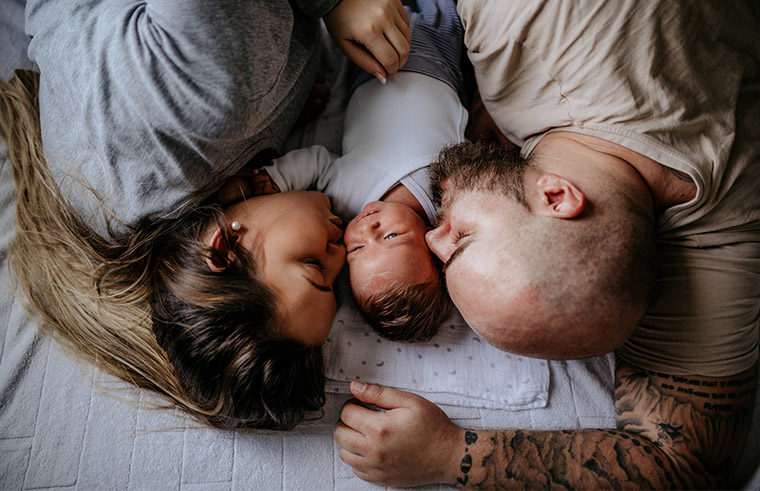I accidentally became a control freak mum when my son was born

When my first son was born I was smitten. From the moment he arrived, I wanted to eat him all up. Those tiny fingers and toes, that little button nose and that perfect little face. It was a case of move over hubby, there’s a new man in my life. It remained that way for the next few months.
Without realising it I became a control freak
I insisted on doing everything for my son. When my husband stepped in to help, I’d criticise him, take over or simply get cranky.
As the primary caregiver, I was convinced that no one could look after my son as well as me, even my poor hubby who was so keen to be hands on.
As a first-time mum, I know that my behaviour was pretty common. Fortunately for me, it didn’t impact on my husband’s relationship with his son, or his enthusiasm to partake in being a dad.
Research has shown that it could have been different.
Researchers call it ‘maternal gatekeeping’
According to a study by Ohio State University, dads who felt their children’s mothers either denigrated their skills or took over from them were less engaged and warm when playing with their kids six months later.
The more extreme these tendencies, which the researchers called ‘maternal gatekeeping’, the more they can sap new fathers of their confidence around the child and lead them to avoid baby-father interactions.
While the researchers said that gatekeeping by mothers is natural because they deliver and nurse them, so have a natural bond, they noted that some of it is social. Some mothers feel it’s their role to supervise all aspects of childrearing.
You learn on the job
“Parenting is a unique situation where, for the most part, you learn on the job,” says psychologist, Giuliett Moran from Empowering Parents.
“Given this, it’s likely that the primary caregiver (who’s often the mother), spends a significant amount more time with the newborn child and quickly gains experience and confidence which may cause them to feel more capable than their partner.”
Moran notes that the problem with this is that a partner can end up feeling like they’re not trusted enough to care for their own child and, subsequently, feel incompetent.
“This can negatively impact upon their self-esteem, their opportunity to bond with the child and potentially their relationship with you,” says Moran.
To avoid this, Moran says it’s important to take the time to think about your parenting approach and what matters to both of you and discuss it.

Share the responsibilities from the beginning
For example, if you want to share the load and take some time out, it’s important that your partner feels confident enough to care for your child. This is also the case as you establish new routines and expectations for ongoing care responsibilities.
“Remember that partners need opportunities to gain experience too, so they can feel confident and comfortable in their new role,” advises Moran.
“Given that they may have less time with the baby, it’s even more crucial to allow your partner to share the responsibilities from the beginning, whilst supporting each other and being able to provide advice and guidance.
“Talk to your partner about what you see your roles being as parents, what you’re excited about, enjoy doing, find difficult, and feel nervous about,” she says. “This allows you to make conscious decisions about your roles and be mindful of times when it’s important to be inclusive.”
In those early days, it took me a while to accept that my hubby could do things as well as me or, in some instances, better! He could settle our son quicker, had more patience and he didn’t care about poops or vomit.
Fortunately, their bonding was as solid then as it is now. If anything, I’m often on the outer and, rather than guarding the gate, I’m knocking to get in!
 Need some support to be the best parent you can be? Our Parent School parent coaching experts can help. Click to find out more or book a one-on-one session.
Need some support to be the best parent you can be? Our Parent School parent coaching experts can help. Click to find out more or book a one-on-one session.









